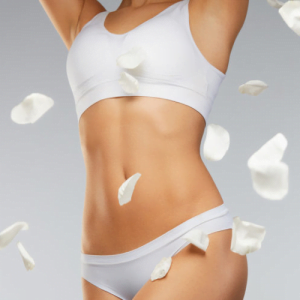Introduction
Despite being a crucial component of overall wellbeing, women’s intimate health is sometimes shrouded in shame, misinformation, and a reluctance to be publicly discussed. An essential component of female anatomy, the vulva is important for reproductive and urinary processes in addition to sexual wellness. Many women are unaware of the structure, look, and what constitutes “normal” for the vulva, despite its significance. Understanding the vulva is crucial for practicing proper intimate hygiene, identifying health issues early, and knowing when to seek medical attention, according to Dr. Shraddha Goel, a cosmetic gynecologist and PCOS specialist.
This blog seeks to provide light on the anatomy of the vulva, its inherent variances in appearance, proper care, and when to consult a physician if something changes.
What is the Vulva?
The exterior portion of the female genitalia is referred to as the vulva. It is not the same as the internal passage, the vagina. The vulva consists of:
- Mons pubis: The area above the pubic bone that is coated in fatty tissue and covered in pubic hair is known as the mons pubis.
- Labia majora: Outer lips that shield the internal components.
- Labia minora: Women’s inner lips that differ greatly in size and shape.
- Clitoris: An extremely sensitive organ that is crucial to sexual pleasure.
- Urethral opening: The urine flow opening.
- Vaginal opening (introitus): The vaginal entrance.
- Perineum: The space between the anus and the vaginal entrance.
Appearance of the Vulva: What is Normal?
Whether or not their vulva “looks normal” is a concern for many women. The fact is that each vulva is distinct, much like faces.
Common Variations in Vulva Appearance
- Color differences: Depending on skin tone and hormonal factors, the vulva can be pink, brown, or dark purple.
- Labia size and shape: While some women may have larger labia minora that extend past the labia majora, others may have smaller ones. Both are typical.
- Texture: There may be oil glands, hair follicles, and tiny lumps. Usually, these are not harmful.
- Symmetry: One side of the labia is frequently a little bigger or shaped differently than the other.
Factors That Affect Vulva Appearance
- Hormonal changes (puberty, pregnancy, menopause)
- Aging (skin becomes thinner, less elastic)
- Genetics
- Childbirth (may cause stretching or changes in tissue)
It is crucial to realize that there is no one “perfect” or “ideal” vulva, and that a woman should only pursue cosmetic gynecological operations like labiaplasty if she is uncomfortable or has health issues.
Maintaining Vulva Health
Comfort and the avoidance of infections or irritations are guaranteed by proper vulva care.
1. Hygiene Practices
- Steer clear of perfumed or strong soaps and instead wash with plain lukewarm water.
- After taking a shower or urinating, gently pat dry.
- To lessen the accumulation of moisture, wear breathable cotton underwear.
2. Avoiding Irritation
- Douching should not be done every day since it upsets the pH balance.
- Avoid using powerful detergents, talc, or fragrant products on underwear.
- After working out, change off of sweaty clothes as soon as possible.
3. Healthy Lifestyle Habits
- Drink plenty of water to improve tissue health.
- Keep up a healthy, vitamin-and antioxidant-rich diet.
- Prevent sexually transmitted infections (STIs) by engaging in safe sexual behavior.
Common Vulvar Conditions
Concerning changes in the vulva might occasionally be noticed by women. Some need medical care, but the majority are safe.
Vulvar Irritation and Itching
- Causes: allergies, infections, skin conditions like eczema.
- Relief: soothing creams prescribed by a doctor, avoiding irritants.
Vaginal and Vulvar Infections
- Yeast infections: cause itching, redness, and thick discharge.
- Bacterial vaginosis: leads to a fishy odor and grayish discharge.
- STIs: can cause sores, blisters, or unusual discharge.
Vulvar Lumps and Growths
- Bartholin’s cysts: swellings close to the vaginal entrance that are packed with fluid.
- Fordyce spots: innocent sebaceous glands that resemble tiny white or yellow pimples .
- Genital warts: caused by HPV infection.
Pain and Discomfort
- Vulvodynia: persistent vulvar pain with no apparent cause.
- Dyspareunia: pain during intercourse.
When to See a Doctor?
Understanding when vulva changes could point to a medical problem is essential. Women ought to speak with a gynecologist if they observe:
- Persistent itching, burning, or irritation.
- Unusual discharge that changes color or smells.
- Discomfort when urinating or having intercourse.
- Visible sores, ulcers, or persistent lumps.
- Changes to the vulva’s skin tone, texture, or appearance.
- Any bleeding that doesn’t occur during periods.
Infections, skin disorders, and infrequently, vulvar cancer, can be ruled out with early consultation with an expert like Dr. Shraddha Goel.
Myths About Vulva Health
There are a number of myths that cause women to engage in risky behaviors or experience needless shame.
Myth 1: All vulvas should look the same
Truth: Variations are normal, and each vulva is distinct.
Myth 2: Vaginal douching keeps the vulva clean
Truth: Douching can cause infections because it alters the pH balance.
Myth 3: Dark skin around the vulva is abnormal
Truth: Hormones affect pigmentation, which is entirely normal.
Myth 4: Vulvar discomfort is always due to poor hygiene
Truth: Hormonal fluctuations, infections, and dermatological disorders can all be the cause.
Tips for Vulva Self-Care
- Examine yourself once a month to get a sense of how your vulva normally looks.
- Whenever possible, dress comfortably and loosely.
- Change out of your wet clothes as soon as possible after swimming.
- Control your stress since too much stress might lead to infections and skin flare-ups.
- Plan yearly gynecological examinations as a preventative measure.
Conclusion
A vital and delicate component of the female anatomy, the vulva merits consideration and care. Women should take proactive measures to maintain intimate well-being by being aware of its anatomy, typical fluctuations, and potential health risks. Keep in mind that every woman has a different anatomy, and that individuality should be celebrated. There is no such thing as the “ideal” vulva.
Do not hesitate to seek the advice of a specialist if you encounter any discomfort, changes in appearance, or symptoms such as odd discharge or persistent itching. Cosmetic gynecologist and PCOS specialist Dr. Shraddha Goel stresses that prompt assessment can assist address issues and avoid problems.
Maintaining your vulva is important for your general well-being, comfort, and confidence in addition to your physical health.




